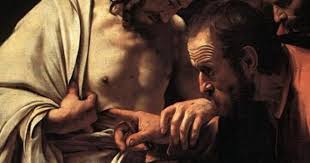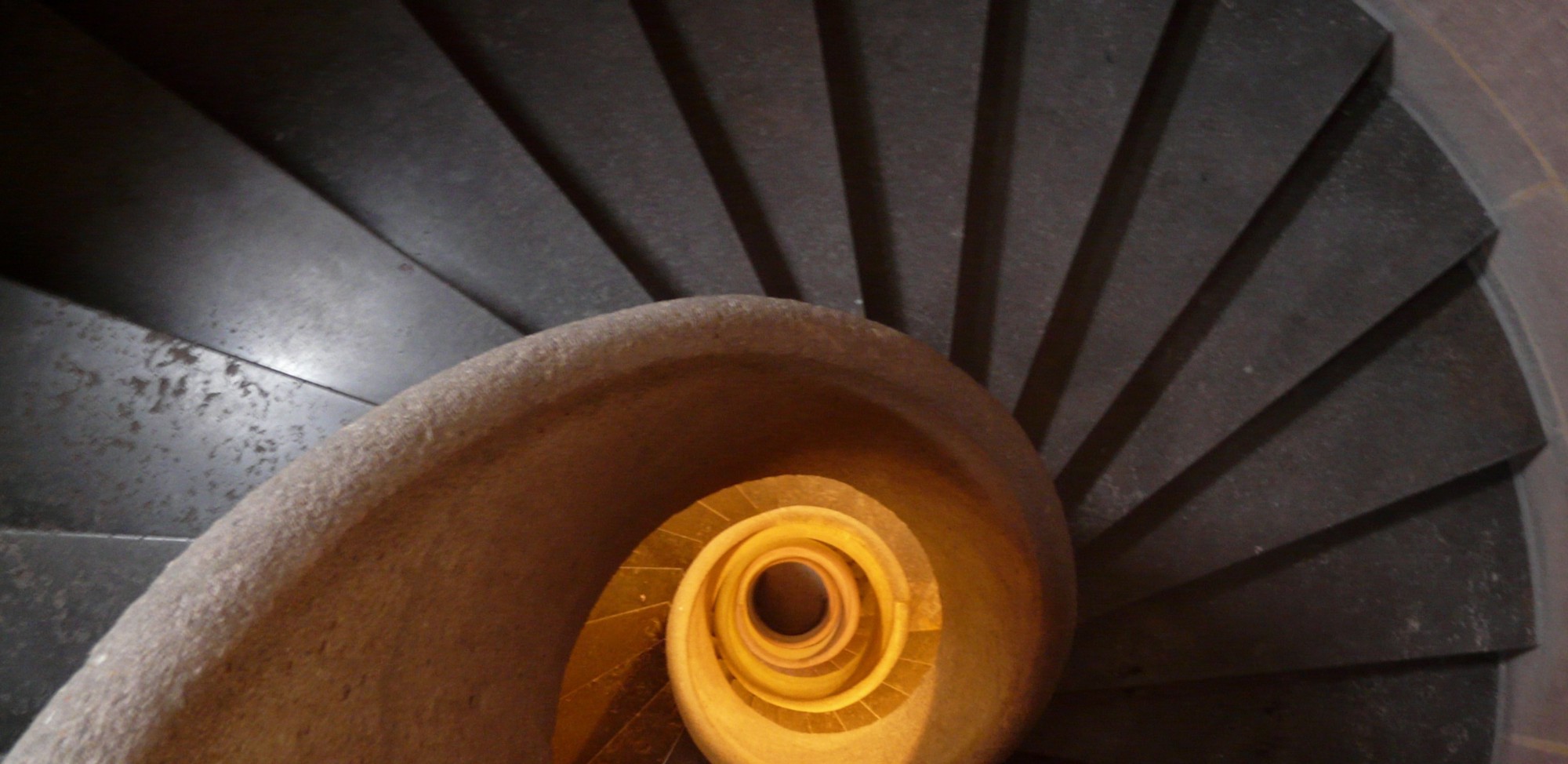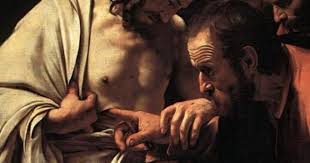 Good Friday
Good Friday Friday: The Road to Sunday
 Thursday, March 29, 2018 at 06:02PM
Thursday, March 29, 2018 at 06:02PM  As followers of Jesus, we need to embrace Good Friday, which is a little bit like saying we need to embrace torture.
As followers of Jesus, we need to embrace Good Friday, which is a little bit like saying we need to embrace torture.
From that time on Jesus began to explain to his disciples that he must go to Jerusalem and suffer many things at the hands of the elders, chief priests and teachers of the law, and that he must be killed and on the third day be raised to life.
Peter took him aside and began to rebuke him. "Never, Lord!" he said. "This shall never happen to you!"
Jesus turned and said to Peter, "Get behind me, Satan! You are a stumbling block to me; you do not have in mind the things of God, but the things of men."
Then Jesus said to his disciples, "If anyone would come after me, he must deny himself and take up his cross and follow me. For whoever wants to save his life will lose it, but whoever loses his life for me will find it.
Matthew 16: 21 - 25
Good Friday is the day when we remember the crucifixion of Jesus, but there’s more to it than remembering: Jesus calls us to the cross, too. The famous sermon says, "it's Friday, but Sunday's coming!" More properly the point of the story is that Friday is the road to Sunday. There's no Easter Sunday without Good Friday. There is no resurrection without the Cross; and as his followers, there's a Good Friday for all of us.
The very idea of Good Friday causes us concern. The problem is that both his power and wisdom led him to the Cross, a brutal denial of everything he had done before. Those who had seen his power wondered why he seemed powerless at his greatest need. Those who saw his intelligence wondered how someone so smart could miscalculate so badly. Both sides missed what Jesus and his Father were saying: “unless a grain of wheat falls into the ground and dies, it abides alone, but if it dies, it produces many.” (John 12:24) Not just his words: his very life is a parable.
It wasn’t just the people of Jesus’ day who had a problem with the Cross. Even today religious-minded people want miracles and power. In our day intellectually minded people want wisdom and truth. What God offers us all is first the Cross. The earliest believers called the Cross “the wisdom of God and power of God.” (I Corinthians 1: 23 - 24) This is a stumbling block for us to consider today: that both his power and wisdom led him to the Cross. People prefer not to dwell on such things. After all, who respects suffering?
You want to tell a story worth telling? Try this one: things are always darkest just before they go pitch black. And then, in the blackness of the truth--the truth that our own power or smarts are never enough we discover that we need to rely solely on the promise of the Father.
Once you’ve been to the Cross, everything changes: stumbling blocks and foolishness turn into power and wisdom. The Cross changes everything. If something’s pursuing you, then perhaps the event, which will change everything for you, is the Cross. If nothing is changing, maybe you haven’t been to the Cross.
Easter is indeed about the empty tomb. But first it’s about the Cross. Why are we in such a hurry to rush Jesus up to heaven? Is it because the Cross doesn’t fit into our picture of how things ought to be? It didn’t fit into anyone’s picture back then, either. But Friday is the road to Sunday. It was the road for Jesus; it is the road for us.
God promises never to forsake you, but it doesn’t always feel that way, right? Here are two of the phrases Jesus uttered on the Cross: “Why have you forsaken me?” and “Father, into your hands I commend my spirit.” How can those two go together? Even at his death, Jesus showed us how to trust the Father beyond the circumstances. His is the example of Job: “Though he will kill me, he’s still my only hope.” (Job 13: 15) The only safe place is the mercy of God, even if it appears he himself is against you.
Jesus predicted his death and resurrection. It's one thing to predict the future. It's quite another to go to the cross willingly. At least three times Jesus shared his destiny with the disciples. They didn’t understand. More challenging still is the fact that Jesus embraced this destiny by faith. He knew the Father’s promise of resurrection, but death still lay ahead of him. And death was still death, even for Jesus. It was his trust in the Father’s promise that caused him to wager everything he had, his very life. As a man, Jesus modeled how to trust the Father.
The Deep Work of Glory
 Wednesday, March 21, 2018 at 11:02AM
Wednesday, March 21, 2018 at 11:02AM  Sometimes God and we have the very same goals yet we find ourselves working against him. God wants to bring many sons and daughters to glory. And we want glory. What could possibly be the problem? The problem, as is so often the case, is that God means one thing while we mean another. What God calls glory came at great cost to him, still he offers it to all. We think we have a better way.
Sometimes God and we have the very same goals yet we find ourselves working against him. God wants to bring many sons and daughters to glory. And we want glory. What could possibly be the problem? The problem, as is so often the case, is that God means one thing while we mean another. What God calls glory came at great cost to him, still he offers it to all. We think we have a better way.
We think the path to glory is our own achievement; Jesus proved the path to glory was humility. We think glory comes in the noisy public square; God gives glory in the secret place of sacrifice. The Father wants to give glory to many; we want glory as a reward fit only for the few, provided that means us.
It turns out God’s way is as important as God’s will. He wants to “bring many sons to glory.” His method is his own suffering. “In bringing many sons and daughters to glory, it was fitting that God, for whom and through whom everything exists, should make the pioneer of their salvation perfect through what he suffered. Both the one who makes people holy and those who are made holy are of the same family. So Jesus is not ashamed to call them brothers and sisters” (Hebrews 2:10-11). It’s breathtaking: his suffering makes family of us all.
We use our version of glory to set us apart from others: we require the praise of men. Our version is just plain wrong. It blinds us from seeing—or tasting—the real thing. Jesus wanted nothing to do with fool’s glory: “I do not accept glory from human beings, but I know you. I know that you do not have the love of God in your hearts. I have come in my Father’s name, and you do not accept me; but if someone else comes in his own name, you will accept him. How can you believe since you accept glory from one another but do not seek the glory that comes from the only God?” (John 5:41-44)
To accept glory that comes from the praise of men is to celebrate a cheap imitation. We must choose between the fast food of praise and the deep soul work of suffering. Jesus suffered, and others came to glory. We prefer the praise of men because such praise is food of ego. It is cheap and goes down easy. We can find it on nearly any street corner. It is tasty and filling. But the praise of men rejects the deep work of God. He invites us to become deep people. The deep work is the slow work; it is also the lasting work. Four hundred years ago Richard Sibbes encouraged us toward the deep, slow rhythms of God: “Glory follows afflictions, not as the day follows the night but as the spring follows the winter; for the winter prepares the earth for the spring, so do afflictions sanctified prepare the soul for glory.”
The deep work prepares us for eternal joy. We do not pursue suffering in order to win glory: we endure suffering and discover Jesus there, waiting for us. The Apostle Peter assures us of a result (“joy unspeakable and full of glory”) even as he tells us the truth: “since Christ suffered in his body, arm yourselves also with the same attitude, because whoever suffers in the body is done with sin.“
Glory is the true gold of life with God. It is as rare as any true gold, but there are veins of his glory available. The same Jesus who suffered for us the one willing to suffer with us. Such is his glorious assurance.
The Air Around Us
 Saturday, January 6, 2018 at 11:45AM
Saturday, January 6, 2018 at 11:45AM It was some time during elementary school, but I still remember that moment when I first realized I was surrounded by... air! I wasn’t surrounded by nothing, I was surrounded by something. The wonder carried me away. I was swimming through the air. If I raised my arm above my shoulder, it meant the air around me was moving, too.

My childish imagination kicked in strong. What would it be like to see the air, cool blue and warm red? Was I breathing colors? I saw it with my imagination. Inhale a faint celestial blue and exhale rose-colored pink. I could see the air move and mix and blend, or watch it settle, still and motionless, level as a lake. My head was filled with Impressionist masterpieces, the sky swirling with hues and shades too subtle for those in a hurry, but a rainbow for those with eyes to see.
That was before long higher education crushed my wonder. In science class I learned about air pressure and wind resistance. The beauty of my childhood faded into the orthodoxy of physics, climate, and chemistry. The atmosphere became one more domain to be studied and measured.
Until one day (I remember this day as well). I read the amazing words of Paul as he addressed the skeptical, logical people of Athens, that city where diplomats and philosophers gathered on a hill named Mars, for the God of war. Paul quoted a Greek mystic from centuries before, and I saw the invisible God in much the same way I had imagined how the air must be:
“ . . . For in him we live and move and have our being.” (Acts 17:28)
The child in me was released again. I saw again the living, moving, breathing God! How could I avoid him—and more importantly, how could I have missed him?
When I walk from the bedroom to the kitchen, I walk through God. When I walk into a new situation, God is there, waiting for me. Even the darkness is light to him. He inhabits the day and the night. Intuitively I understood a distinction: everything is not God, but God is in everything. True, the theologians had already told me God was omnipresent, but in doing so they reduced him to a concept I could memorize and recite. But I do not need lifeless facts; I need him.
“He is not far from each one of us.” The vast Creator surrounds us like the air. We breathe the air. It penetrates through our lungs to our very blood, and the blood delivers it to every cell. God himself is the life-giving air. Our vast swirling God is also intimate enough to be with each of us.
I used to think silence meant God was not speaking. Now, in the silence, he’s all I hear.
We need not go anywhere to find him, because the slightest shift of our gaze reveals his nearness. If I am alive, if I move, I am encountering him. In every part of my being, he is here.
Can you see the air?
One Dozen Wonderful Thanksgiving Quotes
 Wednesday, November 22, 2017 at 03:50PM
Wednesday, November 22, 2017 at 03:50PM  "I would maintain that thanks are the highest form of thought, and that gratitude is happiness doubled by wonder." ~ G.K. Chesterton
"I would maintain that thanks are the highest form of thought, and that gratitude is happiness doubled by wonder." ~ G.K. Chesterton
The thankful receiver bears a plentiful harvest. ~ William Blake
Be true to yourself, help others, make each day your masterpiece, make friendship a fine art, drink deeply from good books - especially the Bible, build a shelter against a rainy day, give thanks for your blessings and pray for guidance every day. ~ John Wooden
It must be an odd feeling to be thankful to nobody in particular. Christians in public institutions often see this odd thing happening on Thanksgiving Day. Everyone in the institution seems to be thankful "in general." It's very strange. It's a little like being married in general. ~ Cornelius Plantinga, Jr.
Thou who hast given so much to me, give me one more thing - a grateful heart! ~ George Herbert
It is not how much we have, but how much we enjoy, that makes happiness. ~ Charles Spurgeon
Gratitude is the least of the virtues, but ingratitude is the worst of vices. ~ Thomas Fuller
If you remember the dignity of the Giver, no gift will seem small or mean, for nothing can be valueless that is given by the most high God. ~ Thomas a Kempis
The best things are nearest: breath in your nostrils, light in your eyes, flowers at your feet, duties at your hand, the path of God just before you. ~ Robert Louis Stevenson
We have received too much from God to allow ourselves opportunities for unbelief. We have received too many gifts and privileges to allow a grumbling, murmuring heart to disqualify us of our destiny. In contrast, the thankful heart sees the best part of every situation. It sees problems and weaknesses as opportunities, struggles as refining tools, and sinners as saints in progress. ~ Francis Frangipane
Gratitude . . . goes beyond the "mine" and "thine" and claims the truth that all of life is a pure gift. In the past I always thought of gratitude as a spontaneous response to the awareness of gifts received, but now I realize that gratitude can also be lived as a discipline. The discipline of gratitude is the explicit effort to acknowledge that all I am and have is given to me as a gift of love, a gift to be celebrated with joy. ~ Henri J. M. Nouwen
We ought to give thanks for all fortune: if it is good, because it is good; if bad, because it works in us patience, humility, contempt of this world and the hope of our eternal country. ~ C. S. Lewis
Hope & Promise
 Thursday, November 9, 2017 at 11:38AM
Thursday, November 9, 2017 at 11:38AM “By hope we lay hands on the substance of what we believe and by hope we possess the promise of God’s love.” ~ Thomas Merton
 The Father reaches out to us through his great and precious promises. Hope encourages us to reach toward him with both hands, ready to grasp his love.
The Father reaches out to us through his great and precious promises. Hope encourages us to reach toward him with both hands, ready to grasp his love.
I hear God’s promise, perhaps through reading the scripture or listening in prayer. The promise requires something of me: to believe, to hope. When I respond with hope the promise comes alive in me, it no longer resides in a book or as an idea, it becomes a living thing.
It’s too easy to reduce the words of God to principles and precepts, as if the Father is the Great Theology Lecturer in the Sky. But no: he is personal, intimate, and close. No amount of study can achieve this intimacy. Intellectuals value learning; the desperate value hope. God's promises are not grandiose proclamations from a mountaintop; they are love-words whispered in my ear—secrets known only to him and me. His promises are not the stuff of contracts and agreements that lawyers can parse and accountants measure; they are bread and wine that sustain my body and lift my spirit.
Each promise from God is personal, even if it is given to many people. Others might hear the very same words and stand unmoved or evaluate the promise with a critical eye. Trusting this promise is a high-risk strategy, they judge. There’s no guarantee of success; the odds are against this plan. But hope is not a strategy: it is birthed when the words of loving parent are received and treasured by a trusting child. We cannot really believe the promises of God until we take the dangerous step of trusting him.
The Apostle Peter understood the dynamic power released in us when place our hope in the promises of God. “Because of his glory and excellence,” he writes in the first chapter of II Peter , “he has given us great and precious promises. These are the promises that enable you to share his divine nature and escape the world’s corruption caused by human desires.” Hope leads us toward the divine nature and leads us away from the corrupting power of our own desires apart from his promises. It’s not that desire itself is bad; it’s that the promises of God are the proper object of desire. Our desires comfort, ease, security, wealth, and control actually corrupt our souls. Human desires apart from God’s promises will wear us down and break us apart—that’s what corruption is. But desire, when pointed toward God’s promises, become a life-giving tree, rooted deep within us. “Hope deferred makes the heart sick,” say the Proverbs, “But desire fulfilled is a tree of life.” When our hope is in anything other than the promises of God, we will find ourselves heartsick.
There is a modern word for this kind of heart sickness: cynicism. Cynicism is an infection that poisons the everyday blessings of life and multiplies the everyday problems of life. Despair is not the opposite of hope: cynicism is. Cynicism is anti-trust; it is the whispered voice of caution that flows from the self, a self separated from the love of God. It is the illness of our age, presented to us the wisdom of the worldly-wise, self-preservation masquerading intelligence.
Why is cynicism regarded as a useful tool for coping with life but hope is written off as wishful thinking? Hope is the more powerful force for change. Let others label hope as risky: the real risk is to live our lives as if God does not exist. The day will come when the scoffers and cynics will stand amazed that the small and the foolish were right all along: hope is the way forward.

